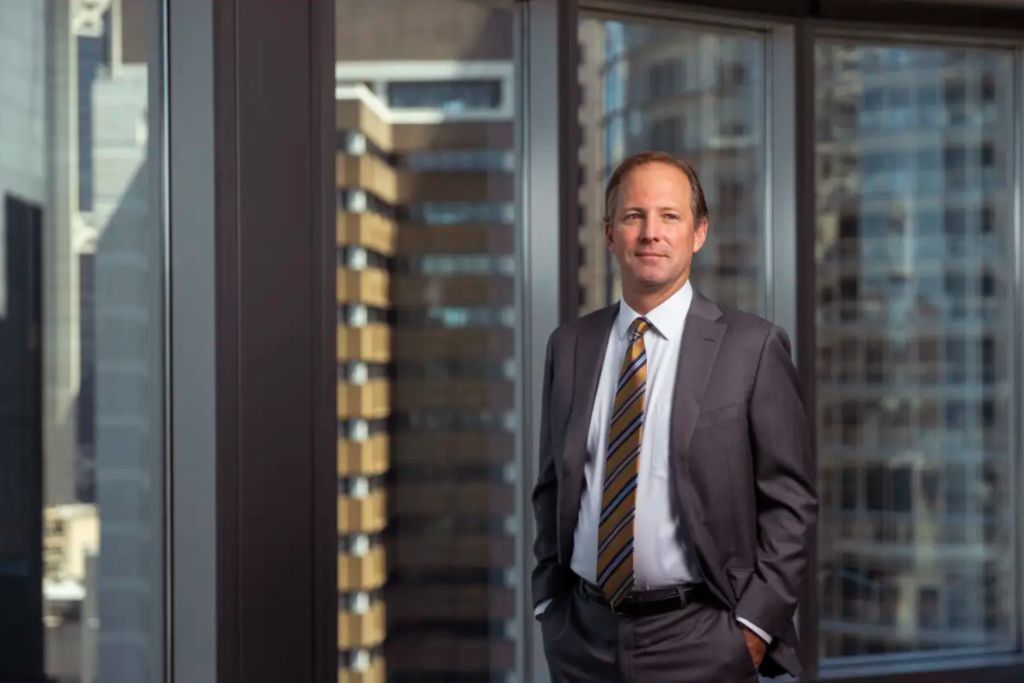
‘Mispriced property stocks will have their day'
US-based Joseph Smith, who oversees $US12 billion ($17.5 billion) in property stocks through CBRE Investment Management, is quietly confident listed real estate will bounce back into positive territory next year as the cycle of rising interest rates finally levels out.
If anyone can take a long view on the real estate investment trust (REIT) sector, it’s Mr Smith, who has worked in listed property for more than 30 years and is chief investment officer for listed strategies at CBRE Investment Management. The investment house has about $US150 billion globally overall under management. Its property securities and real assets exposure includes four funds on which it partners with UBS in Australia.
The Australian REIT sector is down about 20 per cent for the year so far, one of its worst yet. It’s no surprise to Mr Smith, given that capital-intensive sectors such as real estate are highly sensitive to rate changes.
“Interest rates have moved up so substantially in such a short period of time. There should be a pullback as asset classes, including real estate get repriced,” he told The Australian Financial Review during a recent visit to Sydney.
But it also means there is scope for a rebound just as quickly when the rate-increasing cycle eases.
“If interest rate volatility begins to moderate, I would submit that this asset class is materially mispriced.
“The earnings outlook is good. Most importantly, the balance sheets are in good shape. There’s an investor expectation that at some point next year interest rates globally will no longer be going up. The probability of a recession is increasing.We’ll have more stability in markets and then things that are mispriced will have their day.”
Although property stocks in Australia and globally have been hit hard, unlisted real estate, such as that held by superannuation funds, unlisted trusts and sovereign wealth vehicles, is yet to feel the pain. The discrepancy has been a hot topic across the property industry for much of the year, accompanied by a pause in major deals, in anticipation of a reset in values.
“This dichotomy, this extreme between public and private – without some fundamental issue in the assets – is probably as extreme as I’ve ever seen it in my career,” Mr Smith said.
There is no pressure yet for that gap to be resolved by writedowns in the unlisted property portfolios yet because there have been so few transactions to evidence lower values. However, that could change if redemption queues build up, increasing the pressure on unlisted owners to divest assets.
Locally, the UBS-CBRE partnership takes in a $140 million global real assets fund, a $265 million local REITs fund, a $320 million global REITs fund and a $150 million global infrastructure securities fund.
The UBS CBRE funds have been consistently overweight industrial, including players such as Goodman. Their active stock strategy leans towards platforms that can generate revenues that beat inflation, with balance sheets that are lowly geared or have debt on long duration. Landlords with pricing power – where demand for space is greater than supply or where leases keep ahead of inflation – play well for Mr Smith.
In Mr Smith’s view, the office sector remains the most challenged because it is most in need of capital expenditure while margins are lower. Build-to-rent, a major sector in the US and Europe yet still in its infancy here, appeals.
“We would love to be able to invest in it. If there was ever an opportunity, if it was at the right price with the right management team I believe we would be supportive. I wish the companies would get on with it,” he said.











